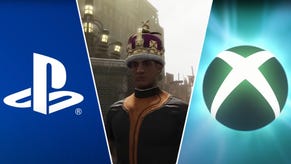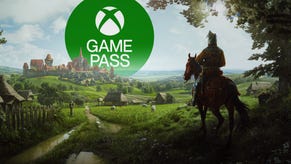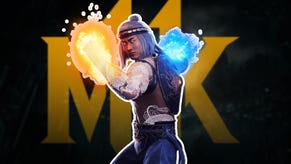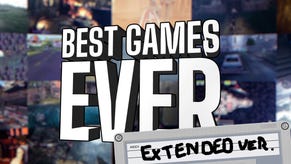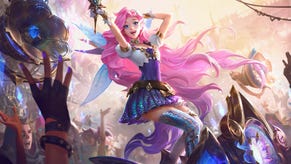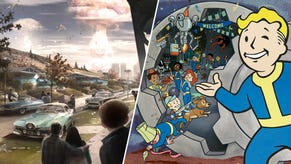Microsoft's E3 Shotgun Blast of Content Made for Its Most Intriguing Lineup Ever
Jeremy weighs in with his thoughts on Microsoft's massive slate of E3 announcements.
This article first appeared on USgamer, a partner publication of VG247. Some content, such as this article, has been migrated to VG247 for posterity after USgamer's closure - but it has not been edited or further vetted by the VG247 team.
You have to hand it to Microsoft: They clearly learned their lesson from the dire reaction to their initial unveiling of the Xbox One. Where originally they presented the console as a device capable of doing anything (including games, sometimes), their E3 2015 presentation reinforces the notion that the Xbox One is for anything to do with games.
If this morning's presentation hadn't been so all-encompassing, you could almost accuse of it being schizophrenic. Dark games next to brightly colored games; exercises in brutal gore porn filled with screams and guitars alongside gentle storybook imagery accompanied by tinkling pianos. Big budget cinematic games contrasting with wacky platformers designed to look like Max Fleischer animation. The future of gaming and tributes to its past. But MS covered very nearly the entire span of gaming's breadth, putting forth their most serious statement of intent for the Xbox One platform — arguably about two years later than they should have, yes, but Sony proved last generation it's possible to turn the fortunes of a lagging system around with a new focus. Coming away from Microsoft's E3 2015 press conference, I actually feel optimistic about Xbox One for the first time ever.
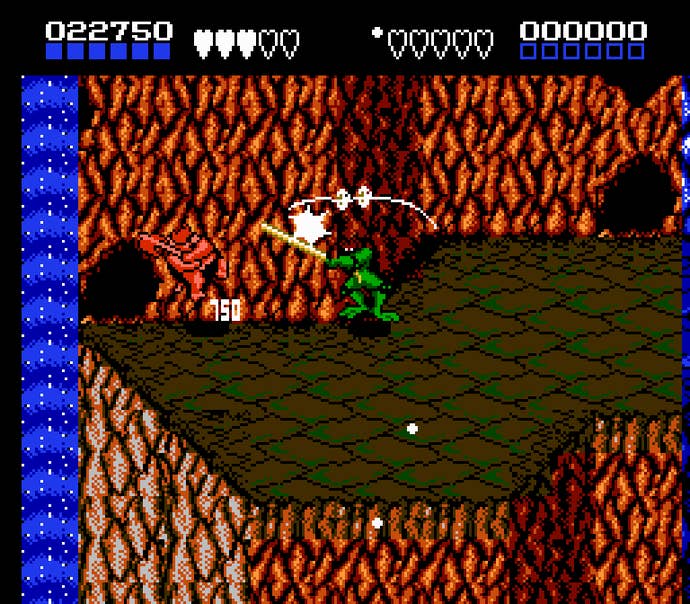
Some of the strategic choices Microsoft has made leave me leery. Not only are they adopting the controversial Early Access model from Steam (and for very PC-first games like Elite: Dangerous and Day Z at that), they've also invited Electronic Arts to build a pay-to-play service that will evidently sit on top of the existing Xbox Live subscription model. So on top of the $60 you're already paying each year to play Xbox One games online, you can also pay an additional $60 to play a dozen EA titles. This particular trend could get ugly in a hurry — if every big publisher decides to hold back their free-to-subscribers titles for their own premium services, it means consumers will be paying much more each month while existing services (Games With Gold, PlayStation Plus) offer less and less value for subscribers. Good for investors, bad for consumers.
On the other hand, MS did announce some budget-friendly initiatives. Rare Replay offers 30 classic and semi-classic Rare games spanning the NES to the Xbox 360, which will come in at the surprisingly low price point of $30 — a solid deal for Blast Corps alone, really. Even more surprisingly, the Xbox One will now offer limited backward compatibility with Xbox 360 games. As with the 360's BC capabilities, it's finite rather than all-inclusive and requires publisher participation; games have to be whitelisted (and presumably require some sort of interpreter update) in order to work on Xbox One. Something tells me publishers will deliberately hold back games for which remasters are in the works — don't expect Dishonored to show up on the list of 100 compatible games when the BC update goes live — but I'd be happy to be proven wrong.
Overall, it was the consumer-friendly moments that garnered the most applause at the press event. Bethesda's integration of Fallout 4 mods developed on PC (to my knowledge, the first time such a feature has ever made it into a console game) was a hit, as was Hololens. In fact, in a conference featuring a number of unexpected announcements, Hololens may have been the biggest surprise. While the tech itself has been a known quantity, the Minecraft-centric demo had far more impact than I think anyone expected.
While everyone going into E3 has braced themselves for a grim onslaught of publishers attempting to sell us on virtual reality, Microsoft's low-key approach to presenting Hololens really stood out. Rather than forcing the altered reality tech concept down our throats and demanding we be excited about it, the demo treated it as more of an opportunity for play and discovery. Poking around in someone else's Minecraft structure to interact with their in-game avatar is not an immersive, cinematic, hyper-realistic experience but rather a way to share and interact. The Minecraft/Hololens combo feels more like something you'd have seen at a Nintendo demo than Microsoft, and I mean that in the best sense.
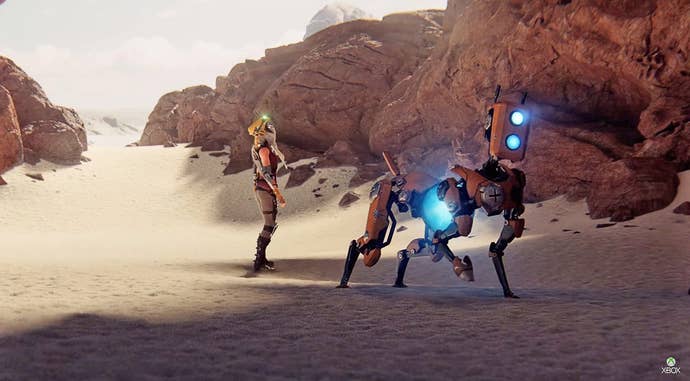
I do have my doubts that Hololens necessarily makes an idea fit for the game's enormous fanbase of preteens (not the only fans of Minecraft, but certainly the most enthusiastic with their near-religious zeal for the game) — it represents quite a financial investment, which means the coolest way to interact with Minecraft will likely dangle out of reach of its most passionate fans. On the other hand, it could offer parents an opportunity to take part in their children's obsessions as a sort of outside observer.
Sadly, the conference's best moments — the Hololens demo, the indie reel — represented only a tiny fraction of the conference's running time. The charming Minecraft demo didn't run nearly as long as the Gears 4 presentation... or at least, it didn't feel that way. Maybe they were about the same duration and Gears 4 simply felt interminable. The irony of the conference is that the big-budget showings felt the most dated and irrelevant. Gears 4 looks like a last-generation game, Halo 5 struggled to demonstrate anything to set it apart from the last Halo, and Rise of the Tomb Raider felt disappointingly by-the-numbers.
Next to the show's new properties, the sequels (except, perhaps, Forza 6) had a musty smell about them. Lots of desaturated colors, quick-time events, and set pieces that feel ripped straight from the heyday of the Xbox 360. Meanwhile, Armature and Comcept's Recore may have reminded me of half a dozen other games (from Portal to Knack), but its visual style and companion-driven mechanics potentially put it more in the Team Ico camp. It also makes me wonder how much of the game has been salvaged from Maverick Hunter, Armature's abortive attempt to work with Comcept's Inafune to reboot Mega Man. Gigantic and Sea of Thieves both bring a bright cartoon aesthetic to grand online adventures. And Beyond Eye provided this year's conference with the same emotional anchor that Ori and the Blind Forest did last year — a pastoral, low-key eye to the noisy E3 storm.
Part of me wants to be cynical about Microsoft's presentation, but looking at their conference as a whole and comparing it to recent years, I honestly feel like the company and Xbox One have really been moving in the right direction. There was far less shrieking noise and senseless violence on display this year; even something like Tomb Raider (which undoubtedly will contain its share of neck-stabbing and gruesome takedowns) focused on navigation and survival action rather than the brutal kills and discomfiting sexually tinged violence that Crystal Dynamics used to introduce 2013's Tomb Raider. Games like Gears 4 and Halo 5 felt more like outliers this year than they did the baseline, and that same ethos of broader appeal was reflected in the presenters, who were only mostly white dudes instead of entirely.
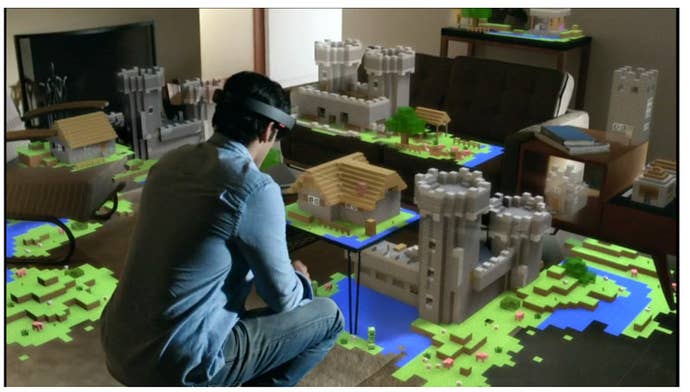
While Microsoft's good faith with initiatives like EA Access remains to be proven, on the whole I feel better about their showing at this year's E3 than... well, basically ever. I feel like this is the message we need to hear, not just from Microsoft but from the industry as a whole: Games come in all shapes and sizes and are made for all audiences without conspicuously pandering to any group. Microsoft's lineup this year feels organic, for lack of a better term. It covers a breadth you normally only see from Nintendo. Now if Sony follows suit, we'll really be in for a treat.

